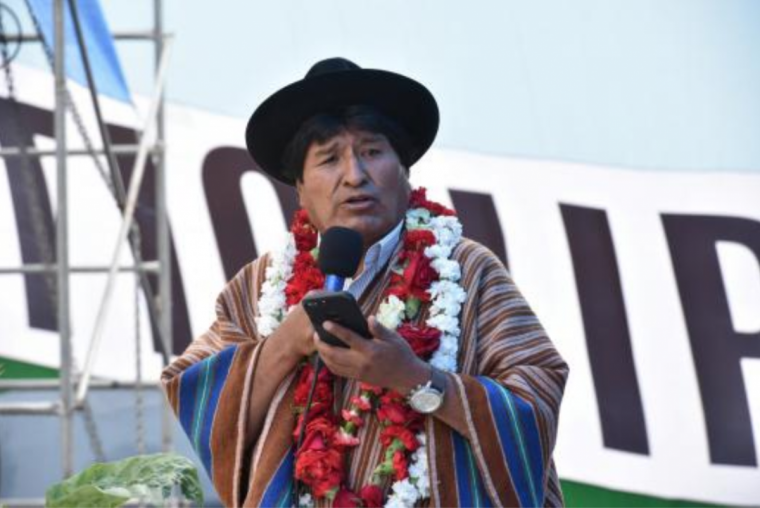Bolivia's president Evo Morales revokes controversial law restricting religion after protests from evangelicals
Bolivia's president Evo Morales has announced that his government is revoking a penal code, introduced on December 15, that severely restricted religious activity and equated it with terrorism and criminality.
'We have decided to repeal the Criminal Code to avoid confusion and so the Right stops conspiring and doesn't have arguments to generate destabilisation in the country, with disinformation and lies,' Morales announced on Twitter. 'We are going to listen to the proposals of all the sectors that observe the code. The national government will never approve norms against the Bolivian people.'
Morales subsequently confirmed the climb-down on state television, on the 12th anniversary of his becoming the Andean nation's first indigenous leader.

'I don't want to keep using Banzer's Code,' he said, referring to the system put in place by former dictator and president Hugo Banzer. 'I ask the assembly...to rapidly advance a new code. I'm almost positive there will be a few changes and modifications to the articles.'
The new law's approval had caused great concern among evangelicals, who believed that the wording of Article 88.1 could 'severely limit the organisation of evangelistic activities'.
The National Association of Evangelicals in Bolivia (ANDEB) had issued a public declaration, stating that the new penal code was 'imprecise, ambiguous, badly written, contradictory and its punitive power can constitute state abuse'. It continued: 'We express our most resolute rejection of the inclusion of our ministerial activities in the list of possible conducts that go against the law.'
Last Sunday, many churches took part in a special day of prayer and fasting, praying peacefully and publicly in several squares to express their opposition to the law.
Yesterday, Christian Today reported that the World Baptist Alliance become the latest in a number of prominent organisations to protest the legislation.
Bolivia is one of the poorest countries in South America with huge income inequalities and an indigenous population estimated at 62 per cent, according to figures provided by the persecution charity Open Doors. This makes Bolivia the country with the largest indigenous population on the continent and in recent years the country has experienced a revival of traditional religion.
While Bolivia's new constitution, introduced in 2008, is secular and ended a historic tie between the Catholic Church and the state, a controversial 2013 law forced all churches and not-for-profit organisations to re-register their legal charters with the government. This meant the state could monitor membership, financial activity and even dictate how churches should structure their leadership.
Open Doors' briefing on the country states: 'It seems dictatorial paranoia as a persecution engine is slowly unveiling itself in the country.'
It adds that President Evo Morales' government has 'suborned the independent judiciary and uses it against political opponents'.
'This is a trend that negatively impacts Christian leaders who seek to defend religious rights,' it adds.











